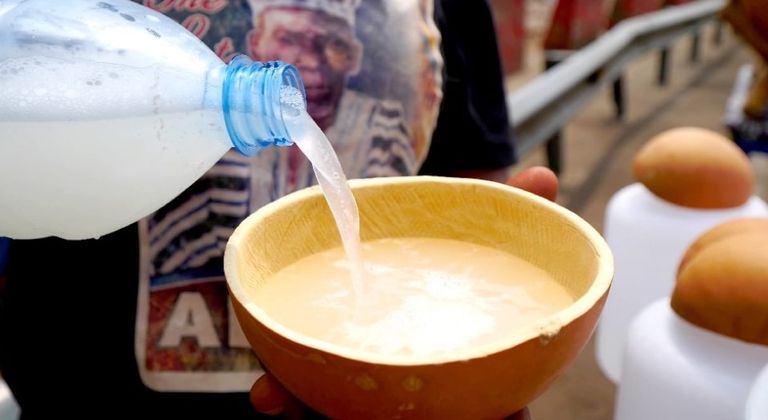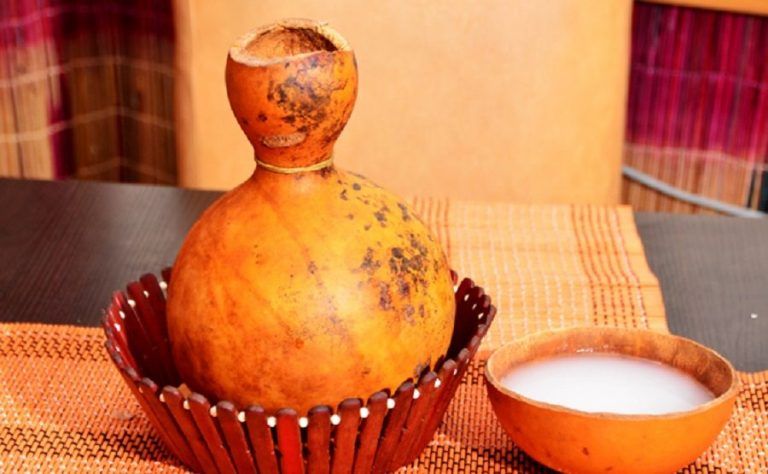
Throughout African history, palm wine has been consumed for thousands of years. The practice of gathering the sap from palm trees, fermenting it, and then drinking the resulting wine has been passed down from generation to generation, with regional variations resulting in local variations. Palm wine is well known in Nigeria that is often served during ceremonies and social gatherings, as well as serving as a refreshing drink on hot days.
Production Process
Thus, how is palm wine produced? It's a very easy process, but it takes a lot of patience and talent. The sap from tall palm trees is extracted by palm wine tappers, also referred to as "tappers," and is gathered in gourds or calabashes. After a few days of fermentation, the sap is allowed to turn its sugars into alcohol by naturally occurring bacteria and yeast. The finished product has a hazy, mildly carbonated flavor that leans slightly toward sweetness and sourness.

Cultural Significance
Palm wine represents festivity, hospitality, and camaraderie. Palm wine is an essential component of customs associated with different ceremonial occasions in many African communities. It's an extraordinary wine that encourages unity and friendliness amongst individuals. In Nigeria, palm wine is frequently offered during social events where people can enjoy it with loved ones while exchanging tales, giggles, and pleasant companionship.
Health Benefits
But palm wine has more advantages than just being a trendy drink; it also has many health advantages. Palm wine is abundant in nutrients such as vitamins and minerals and anti-oxidants; studies have shown that it can reduce blood pressure, promote healthy digestion, and even have anti-inflammatory effects. Making palm wine a wholesome and revitalizing option, the fermenting process also raises the bioavailability of these elements.
So, how does drinking Palm wine taste? On a hot day, picture yourself drinking a cool, refreshing beverage and enjoying the sweet, somewhat sour taste that dances on your tongue. The taste is unmatched by anything you've ever had; it has the ideal ratio of tart to sweet with hints of earthiness. You feel revitalized and renewed as the fizz tickles your nostrils when you sip.

Cultural and Culinary Presence
Palm wine is a common feature of the menus and cultural offerings of many African eateries and cultural centers. You can also attempt creating your own Palm wine at home, but be advised that it takes time and expertise. If you're up for an adventure, you should think about traveling to Nigeria or other African nations, where you can get a personal look at the rich traditions and customs that surround palm wine.

:::Discord:::Twitter :::

Upvoted. Thank You for sending some of your rewards to @null. Get more BLURT:
@ mariuszkarowski/how-to-get-automatic-upvote-from-my-accounts@ blurtbooster/blurt-booster-introduction-rules-and-guidelines-1699999662965@ nalexadre/blurt-nexus-creating-an-affiliate-account-1700008765859@ kryptodenno - win BLURT POWER delegationNote: This bot will not vote on AI-generated content